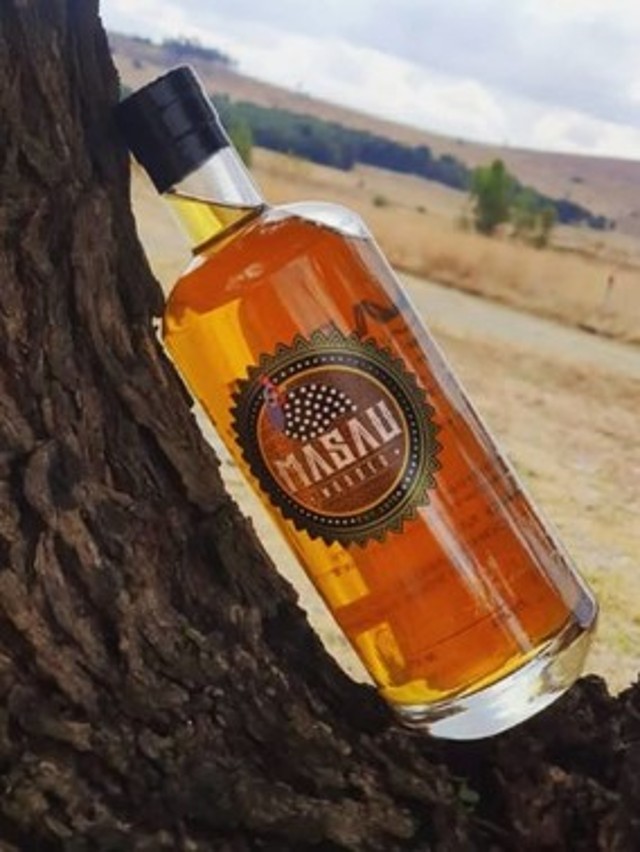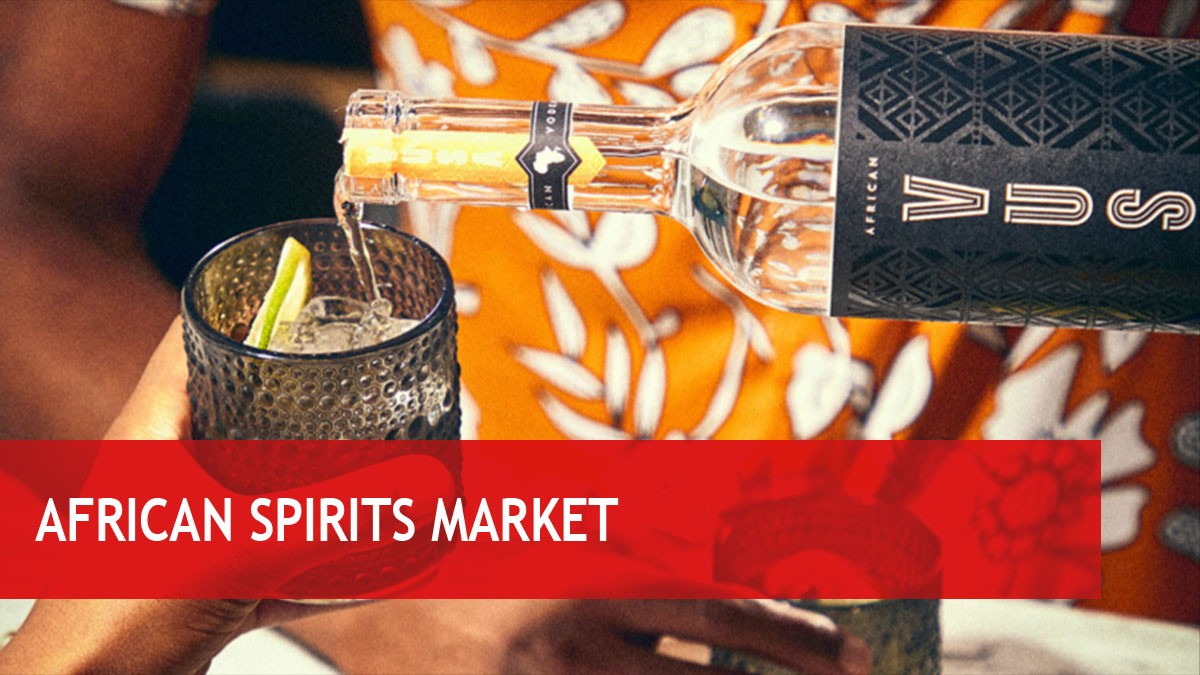African Spirits Market
Drivers: what’s happening
The spirits sector has often been tied to heritage and provenance, with Western legacy brands dominating the internal sales market. But in recent years countries have started to reclaim key industries they have been left out of.

Vusa Vodka, Spearhead Spirits. Photography by Jonathan Lavender
The global spirits market is no different, and as a result, a new wave of diverse and culturally rich spirits are emerging from the African continent, using its unique ingredients to challenge Eurocentric views and a lack of diversity.
Statistics and insights
- In 2023, the market for alcoholic drinks in South Africa is expected to show a volume growth of 26.3% (source: Statista )
- The Tanzanian spirits market reached a value of £535m ($606m, €612m) in 2021, and this is expected to rise at a CAGR of 10% from 2022 to 2027 (source: Imarc Group )
- In Africa as a whole, the spirits market by volume and value will grow by more than a fifth between now and 2023 (source: IWSR )
Market shifts: what’s new
Family flavours
One way in which Africa’s spirits market is achieving success is through the introduction of small, family-run distilleries harnessing tradition, craft and heritage to create spirits for the global market.
Take Masau Spirits as an example. It’s driven by the masau fruit, which looks like a date and is primarily found in the African southern hemisphere. The products, which are marketed online and distributed to local, regional and international consumers, are hand-crafted and distilled by the Pofera Family, who settled in Zimbabwe from Mozambique. This generation of the family are currently being trained in farming masau fruit trees, which will bear fruit in time for the brand to launch its first whisky in 2027.

Masau Spirits, South Africa

Bayab Gin by Spearhead Spirits. Photography by Jonathan Lavender
Even the branding exudes the region’s values. The circular dots symbolise the continuous supply of masau fruit and represent Africa’s love of circular design.
‘To the African artist a circle is a pure form; hence, Africans did not make artefacts that were rectangular or with right angles – our huts, cattle barns, utensils bear testimony to this,’ reads the site. The helmeted guinea fowl, which appears on its logo, is a conscious design decision as it is also native to Africa.
Indigenous ingredients
The idea of finding ingredients that are native to Africa and using those to develop new products for a global audience is another driving force behind the market.
In September 2022, South African drinks firm Distell will launch Amarula African Gin in Europe, initially in the UK, but the brand is also working to secure distribution in Germany, France and Poland. This follows an agreement in 2021 in which Heineken purchased a 65% stake in the group for £1.9bn ($2.2bn, €2.2bn). To date, the gin is the only expression made from marula fruit spirit, native to Africa, and is distilled with juniper berries, orange peel and blossom.
The launch is being supported by a campaign that asks gin drinkers: ‘When was the last time you tasted something for the first time?’ To provide an extra push for sales, £1 of every litre of the drink sold will be donated to the Amarula Trust, which works to safeguard African elephants.
Connected spirits
Unfortunately, cultural bias is rife in the spirits industry, so while local brands are doing what they can to promote their ingredients, flavours and culture, there is plenty of scope for brands to challenge this bias.
Spearhead Spirits is a premium African spirits company on a mission to put African spirits in every bar around the world. ‘With a lack of Black-owned African spirits brands exported globally, we have made it our mission to connect the world to Africa through our spirits,’ says co-founder Chris Frederick .
To date, Spearhead has two drinks in its portfolio: Vusa Vodka , made from African sugar cane, and Bayab Gin , flavoured with fruit from the baobab tree, which is native to the African savannah.
“Being produced on the African continent allows us to show the world what Africans have always known about its culturally and resource-rich continent, with products that compete on the world stage in taste and quality as well as innovation,” explains Chris Frederick, co-founder, Spearhead Spirits.
Analysis: what this means
The alcoholic drinks market in Africa was slowing due to the impact of the pandemic and economic market conditions. But thanks to these brands embracing opportunity and understanding the potential of what’s on their doorsteps, they are creating products fit for an international audience.

Bayab Gin, Spearhead Spirits. Photography by Jonathan Lavender
As this audience discovers those drinks, we can expect a new appreciation for African spirits to grow, bringing about new brands that join those already harnessing the region’s flavour. As they do, however, they will have to be respectful about the region’s culture and heritage.
“By challenging the lack of cultural diversity in the global spirits market, African brands are creating rich flavour profiles that breathe new life into a traditional sector,” says Savannah Scott, senior creative foresight analyst.
Strategic opportunities
- Given the slowing growth in Africa’s alcohol market, the sector is looking for new players to enter the sector.
- Look local. Whether it’s ingredients that are indigenous to the region or family-focused distilleries, consumers will be looking for brands that promote and celebrate their home.
- Thanks to brands like Spearhead Spirits, lack of diversity in the spirits sector is under threat. If you’re looking to launch your own brand in the region, ensure you’re applying the same pressure.
Copyrights of the Article: LS:N Global
Autoren: Savannah Scott and Josh Walker



